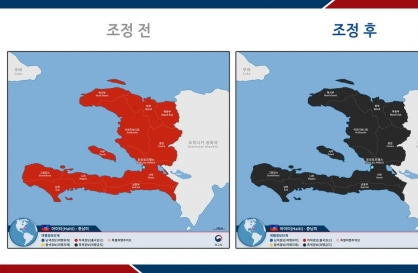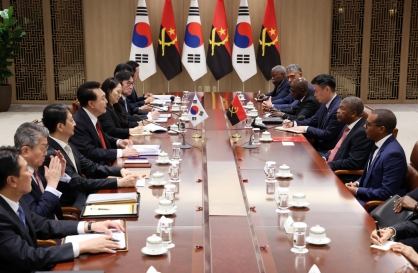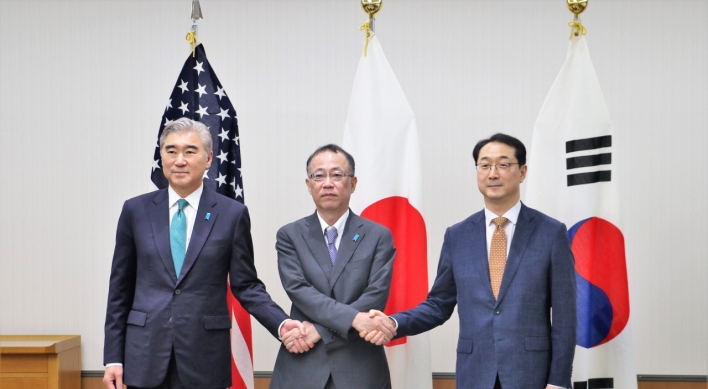[News Analysis] Cost of scaling up EV industry: Short-term profitability
Korean EV battery makers opt for different expansion strategies
By Kim Byung-wookPublished : July 27, 2020 - 17:04

Economics 101: price goes up when there’s more demand than supply.
In the case of electric vehicle batteries, the current supply crunch is only to intensify, with the demand of 916 gigawatt-hours is to overtake the supply of 776 gigawatt-hours in 2023, according to SNE research.
However, the prices have been going down 18 percent every year. Ironically, it’s the battery makers that are bringing down the price of their own products.
“When battery prices fall to $100 per kilowatt-hour, EVs will be similar to internal combustion engine cars in terms of price. This will be a turning point, and the global EV battery market will see explosive growth,” a Samsung Securities analyst said.
To reach the $100 mark, battery makers around the world are following the old playbook of economies of scale. Typically, 100 gigawatt-hours can power 1.6 million cars.
Korean firms are also pursuing production capacity growth, even if it means low profitability for some of the EV battery makers.
LG Chem’s annual battery production capacity stands at 34 gigawatt-hours in Europe and 64 gigawatt-hours worldwide. The firm is the largest of the three major industry players -- the others being Samsung SDI and SK Innovation.
But LG Chem is investing heavily to increase its production capacity.
By the end of this year, it plans to spend 1.5 billion euros ($1.68 billion) to expand the annual production capacity of its battery plant in Poland to 65 gigawatt-hours from the current 34 gigawatt-hours.
In the US, LG Chem is expected to invest 2.7 trillion won ($2.2 billion) with General Motors to build a second plant to secure a 30-gigawatt-hour production capacity. In China, LG Chem aims to invest 1.2 trillion won to increase its production capacity. The company also plans to create a joint venture to establish a 10-gigawatt-hour plant in the country by next year.
Samsung SDI, meanwhile, is taking a relatively conservative approach, despite its annual battery production capacity standing lower than LG Chem’s at 11 gigawatt-hours in Europe and 30 gigawatt-hours worldwide.
This leaves Samsung SDI as the only Korean battery maker to have profited from its battery business in Europe, in line with President Jun Young-hyun’s philosophy that “business without profitability is a house of cards.”
In Europe in the first quarter of this year, Samsung SDI posted a net profit of 11.7 billion won. In comparison, LG Chem, due to its rapid expansion, suffered a net loss of 301.7 billion won. SK Innovation’s battery business in Europe was also in the red.
Some say LG Chem and SK Innovation have an advantage in scaling up, as they have their profitable petrochemical businesses.
Samsung SDI, for its part, plans to invest 1.17 billion euros in the expansion of its EV battery plant in Hungary, according to Hungarian Foreign Minister Peter Szijjarto, though the exact completion date and other details remain undisclosed.
The company has stated that while the expansion in Hungary is the most notable, its other facilities are also undergoing expansion.
SK Innovation -- whose production capacity stands at 7.5 gigawatt-hours in Europe and 20 gigawatt-hours worldwide -- appears to have chosen a path similar to LG Chem’s, injecting cash to increase its capacity.
By 2022, SK Innovation is set to invest 940 billion won to add a 9-gigawatt-hour plant in Hungary to bring its European production capacity up to 16.5 gigawatt-hours.
In the US, SK Innovation has allocated $2.5 billion to build two plants with a combined production capacity of 21.5 gigawatt-hours. The plants -- No. 1 and No. 2 -- are under construction and will begin mass production in 2022 and 2023, respectively.
“Hyundai Motor and Kia Motors are preparing mass production of EVs based on their new platform E-GMP starting next year, so now is the perfect time for Korean battery makers to increase their production capacity to make more profits,” said Kim Pil-soo, an automotive engineering professor at Daelim University.
“However, to be profitable, they need to first secure enough production capacity.”
By Kim Byung-wook (kbw@heraldcorp.com)


















